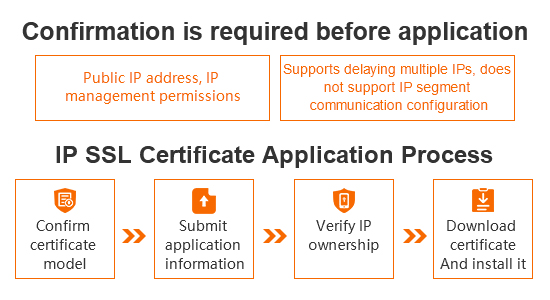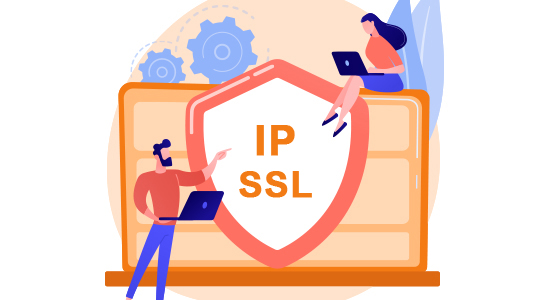sslTrus IP SSL Certificates
An IP SSL certificate is an SSL certificate used to enable HTTPS encryption for IP addresses. It supports binding multiple IP addresses to a single IP SSL certificate, including basic-level DV IP certificates and enterprise-level OV IP certificates. It provides a solution for data encryption transmission for businesses that only have IP addresses or are only convenient to conduct business using IP addresses.
sslTrus IP SSL Certificates
Basic IP SSL Certificates
No materials are required for submission; only verification of domain name ownership is necessary.
- Protects Multiple Domains
- Within 5 Minutes
- $500,000 Certificate Warranty
- RSA 2048/3072/4096 & ECC
- 7*24 Expert Support
- 30-Day Refund Policy
Enterprise IP SSL Certificates
Enterprise Validated SSL Certificates fully validate corporate identity and domain ownership, and are a more secure HTTPS encryption solution than DV SSL Certificates.
- Protects 1 Domains
- 1-3 business days
- $1.000,000 Certificate Warranty
- RSA 2048/3072/4096 & ECC
- 7*24 Expert Support
- 30-Day Refund Policy
How Does an SSL Certificate Work?
It establishes an encrypted connection by ensuring data security and integrity through authentication, key exchange, and encrypted communication. This process is invisible and instant.
Authentication
When a client (such as a browser) attempts to establish a secure connection with a server, it first sends a connection request to the server.
Upon receiving the client’s request, the server sends its SSL certificate to the client. This certificate contains the server’s public key, information about the Certificate Authority (CA), the certificate’s validity period, and other critical information.
After receiving the server’s certificate, the client performs a series of verification operations to ensure the authenticity and validity of the certificate. These verification operations include checking whether the certificate is issued by a trusted CA, whether the certificate has expired, and whether the domain name on the certificate matches the domain name being accessed.
Encryption
After successfully verifying the server’s certificate, the client generates a random session key (also known as a symmetric key).
The client uses the public key in the server’s certificate to encrypt the session key.
The encrypted session key is then sent by the client to the server.
Decryption
Upon receiving the encrypted session key from the client, the server uses its private key to decrypt it, thereby obtaining the original session key.
With the session key in hand, both the client and the server can use this key for symmetric encrypted communication. This means that all data transmitted between the client and the server will be encrypted, and only the parties possessing the same session key can decrypt this data.

Applying for an IP SSL Certificate
Before applying, please confirm the following:
Public IP address, management authority of the IP
Supports single or multiple IPs, but does not support wildcard IP ranges.
IP SSL Certificate Application Process:
Confirm the Certificate Type
Submit Application Information
Verify IP Ownership
Download and Install the Certificate

Advantages of sslTrus IP Certificates
- Robust security
- Phishing & Hijacking Protection
- Increase website transactions
- Ensure website compliance
- Multi-platform compatibility



Enhance the security of the enterprise website
- Robust data encryption
- Boost website trustworthiness
- Optimize SEO rankings
- Eliminate browser warnings
- Protect user privacy
- Display a secure lock icon

A maintenance platform with clear visibility
CLM support full-link automated management of the SSL certificate lifecycle, enhancing management efficiency, reducing security risks, and fulfilling all enterprise needs for SSL certificates in various scenarios.







